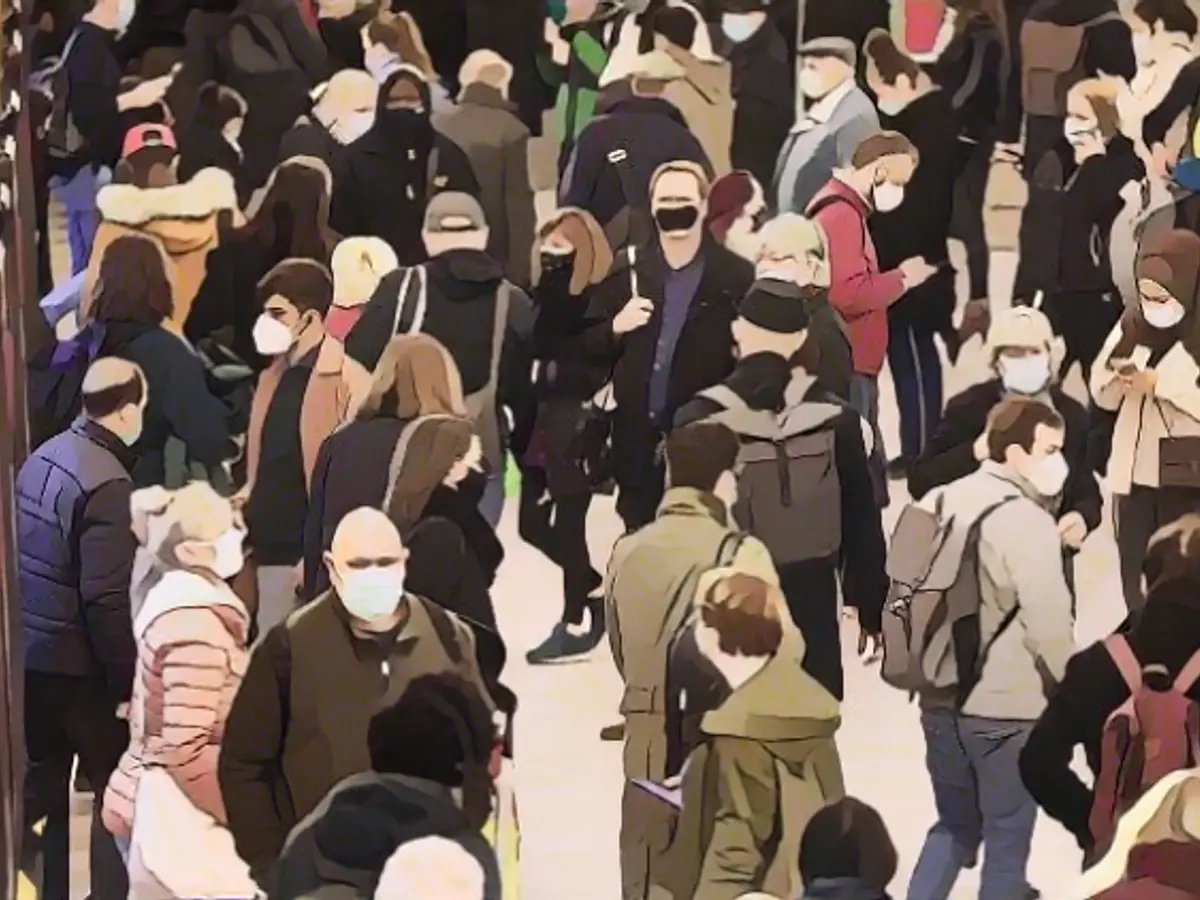Should we all wear masks again now?
The current wave of illness is bringing back unpleasant memories of the coronavirus pandemic. As a result, more and more people are turning to protective masks again to protect themselves from the many viruses that are currently circulating. A doctor explains whether and when this makes sense.
It was almost forgotten, but is now back in fashion: the protective mask. Whether on the train, in the supermarket or at the doctor's surgery, more and more people are once again wearing protection around their mouth and nose. It has not been compulsory for a long time. But the reason seems clear: Germany is currently being overwhelmed by a severe wave of illness. Never before has the Robert Koch Institute (RKI) observed so many respiratory illnesses at this time of year as at present.
The high level of illness brings back unpleasant memories of the coronavirus pandemic. And indeed, in addition to the usual flu and cold viruses, new corona variants are once again rampant this fall. Although these continue to threaten older and immunocompromised people, the situation today is very different to last year or even in previous years: coronavirus is now considered endemic and most people have strong immune protection against the virus thanks to vaccinations, infections or both. According to most experts, there is no longer a threat of massively severe cases or even an overload of the healthcare system.
Nevertheless, wanting to protect yourself against an infection - whether with Sars-CoV-2 or other viruses - can make sense, says prevention physician and medical journalist Dr. Christoph Specht in an interview with ntv.de. Especially if you are immunocompromised, but also if you don't want to fall ill before an important event. According to the expert, you should first and foremost stay away from crowds of people in enclosed spaces. Masks can also help. But: "Only if they fit properly."
The correct fit of the mask
This is often a problem with FFP2 masks in particular, says the expert. They often don't fit well on women. "They often wear a medium or even a large size, which is far too big for women's faces." Then this typical small gap forms between the nose and the mask.
Now you would think that this small gap would be negligible. After all, the mask would otherwise fit snugly and only minimal aerosols would penetrate through the slit. "Wrong!" says Specht. "It's simple physics: air always seeks the path of least resistance." This means that most of the air enters the body through the gap of the ill-fitting mask. You can imagine it like this: "90 percent of the air is breathed through this small hole and only 10 percent through the filter performance of the mask," explains the doctor. The protective function is thus massively restricted or, in the worst case, no longer exists.
In such cases, it would be better to put on a normal surgical mask, says Specht. This usually fits better and therefore provides more reliable protection against viruses in the aerosol. For men, the problem is more likely to be something else. Namely, if they wear a beard. This also prevents the mask from fitting snugly to the face.
Masks are not compulsory
But masks are not just an issue on an individual level. Several hospitals across Germany are reintroducing coronavirus measures by making it compulsory for visitors to wear a face mask. The reason for this is the rising number of infections in hospitals. However, a general obligation to wear masks, as was the case during the coronavirus era, is not in sight.
According to Specht, this is not only due to the fact that the pandemic is officially over. Studies have shown that the mask requirement has had little to no effect on the incidence of infection. The explanation is simple: "Just remember: you saw crooked masks everywhere. Some people wore them under their nose. In addition, one and the same FFP2 mask was generally used far too often," says the expert. Under these circumstances, the mask requirement would have done virtually nothing to prevent the virus from spreading.
At the same time, however, this does not mean that masks do not work on an individual level. "Laboratory tests have shown that masks can very reliably prevent both the inhalation and transmission of viruses if they are fitted correctly," says Specht. So if you wear the right mask correctly, it offers reliable protection against pathogens.
However, as long as you are young and healthy, you shouldn't focus too much on preventing infections. "Overall, there is little point in trying to prevent every infection by constantly avoiding it," says the doctor. It is important that the immune system is confronted with different pathogens so that it can better protect itself against them.
Despite the ongoing wave of respiratory illnesses, the Robert Koch Institute (RKI) has reported a higher number of these diseases than usual during this season. Alongside common flu and cold viruses, coronavirus variants, including Sars-Cov-2, are also causing concern. While vaccinations, infections, or both have provided most people with strong immune protection against coronaviruses, education about the proper use of masks is essential. For instance, masks should fit snugly to prevent large gaps, especially for women or individuals with beards, as incorrect fit reduces their protective function.
Source: www.ntv.de







